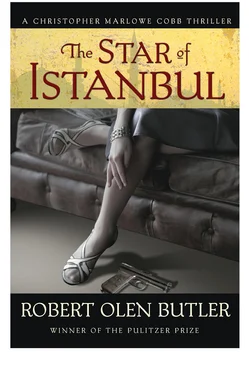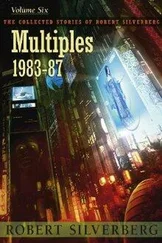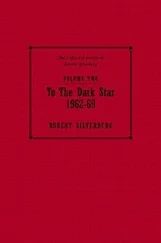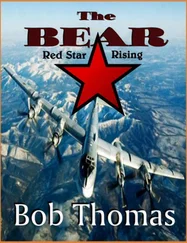Then another obvious question came upon me: Did he know her intentions with Enver Pasha?
The moment between them ended with the father squeezing his daughter’s hand. And Lucine moved her own from beneath her father’s and squeezed his in return, but as a mood changer, as an encouragement. She simultaneously nodded toward me, saying, “I believe this man can play a plausible Walter Brauer. He is the son of Isabel Cobb.”
The father’s eyebrows jumped.
He squared around to look at me. Then he took a deep breath, his barrel chest rising, and he let go of my eyes, lifting his face and turning it slightly to the side. A beseeching furrow came upon his brow, and in a mellifluous baritone he began to speak what I now knew to be Armenian, the sounds rolling and plashing like breakers on an ocean’s shore. There was no mistaking that he was or had once been an actor. It ran in the family.
His voice rose and fell and rose in wrenching emotion and then abruptly stopped. He fell out of character and returned his eyes to mine. “Do you know what I have said?” he asked, his English bent by his native inflection but bent intermittently by London as well.
“I do not,” I said.
“To be or not to be,” he said. “That is the question. Whether ’tis nobler in the mind to suffer the slings and arrows of outrageous fortune. .”
And here his daughter chimed in and they finished in unison: “. . or to take arms against a sea of troubles, and by opposing, end them.”
He put his arm around her shoulders and gave her a little squeeze, and he let go just before her own hand fully rose to brush his away.
She angled her head toward her father, and she said to me, rather flatly, “I’m told he was a wonderful Hamlet.”
He spread his hands before him, “Alas, only in my native language.”
“This is the great Armenian theatrical star of Transcaucasia, Arshak Bedrosian,” she said. I could not decide if she was sincere about his greatness or sarcastic, and so I decided she was both.
The father offered his hand to me at the belated mention of his name — which I grasped — but even as we shook, he continued his muted argument with his daughter, “I was with the Armenian Theater in Tiflis.”
“My mother and I,” Lucine said, “were three hundred and fifty miles away.”
“On the bank of the Tigris. Where my wife had family ties and the only performers were donkeys cavorting for the moon.”
“I never saw his Hamlet,” Lucine said, and a faint but unmistakable wistfulness had slipped into her voice.
“You were merely a child,” Arshak said, though he did not look at Lucine, keeping his eyes on mine. “And I did bring you to Tiflis.”
“For a very brief time,” she said.
“Do you know the greatest Hamlet I ever saw?” he said to me.
“Do you see how his mind works?” Lucine said.
“I’m talking strictly professionally,” he said, arguing directly with her again. “To a man who knows the theater.”
“This is the true reason he stayed in Tiflis,” she said.
“To a man who knows what makes a great actress.”
Lucine looked away from both of us, out the side window of the taxi.
I was watching all this in a sort of trance that these two were inducing in me. The scene they’d played together about the killing had segued into this quite different little drama with remarkable ease, with the two of them in instinctive cahoots even if this playlet was entitled “A Daughter’s Lament for Fatherly Betrayals.”
“The greatest Hamlet of all,” Arshak said, “was a woman.” He paused and lifted his chin. I glanced at Lucine, who had closed her eyes. “Siranush,” he said grandly.
“His mistress,” Lucine said.
“The greatest actress of the Armenian stage.”
“I saw her perform only once,” she said.
“The greatest of any stage,” he said.
“She did not move me.”
Arshak leaned in my direction. “Your mother is the exception, of course. I have heard how splendid she is. Has she ever played Hamlet?”
“She never has,” I said.
I turned my face to Lucine, on stage even now as a man, her eyes tracking the street, perhaps inwardly soliloquizing about her failed parent. And she said to her father, “You fell for her britches.”
“A lie,” Arshak said. “It was her talent.”
And I said to him in my head: She’s got you nailed. Didn’t your daughter just prove her own britches to you? Didn’t you fall for that? Isn’t that why you were so quickly okay with what she did?
Arshak drew back again into his seat. A moment went by. His daughter had stirred something in him.
I watched Lucine as she watched the street, and I listened to the silence coming from Arshak Bedrosian. And then he said, quite softly but clearly, “I hope she is still in Tiflis. They will kill her otherwise.”
At this, Lucine turned once more to her father. I did too. He started a bit, at the attention. He looked to his daughter.
“I’m sorry,” he said. “What is this talk we are making? We have lost our way.”
“Yes,” she said, though the inflection of criticism in her voice seemed directed inward, an acceptance of shared blame.
Arshak said, “’Tis nobler to take arms against a sea of troubles.”
And they both looked at me.
They’d changed the play yet again.
I sought refuge out the window. I had not been keeping track of where we were going, though we were following the Bosporus north. A minaret flashed by and for a moment the water was visible beyond the mosque. Then it vanished with a run of trees and then a high stone wall that kept going on and on and contained within it, I suspected, the grounds of the Palace of Dolmabahçe.
Arshak began speaking Armenian.
I looked at him, thinking he and Lucine were saying things they didn’t want me to hear.
But he was talking into the taxi’s communication tube. The driver was Armenian. Of course he was. One of theirs.
I looked over my shoulder into the driver’s compartment. He could have been the model for the character Lucine was playing. He was small and very young, a teenager still.
When I turned back to Arshak, he lifted his chin toward the driver. “They tell me his father was murdered a few weeks ago.”
“Seems a tough kid,” I said.
“This is what’s left of his old man,” he said, laying both his hands on the seat. Then, after a beat: “Which leads me to a request. May we have a little of your time to speak?”
“We already seem to be on the way.”
“There’s a safe place,” Arshak said.
“We can speak,” I said.
“Among some friends you’ll find unlikely,” he said.
“What your daughter has begun and I’ve gotten caught up in means nothing is safe.”
He shrugged. “Of course. To be Armenian in the Ottoman Empire also means nothing is safe. But at least perhaps for the next hour we won’t die. We do not intend to catch you up. Just to explain.”
“I’m not afraid for myself.”
Arshak laughed softly. “This much I could sense about you already.”
Whatever he had to explain to me, I wanted it to be the straight dope. I figured — as I would if I were here getting an inside news story — that I needed to establish my savvy. I said, “When the two of you met at the Block and Tackle last week, you seemed estranged at first.”
He turned sharply to Lucine.
“I didn’t know,” she said.
He turned sharply to me.
More or less the effect I’d hoped for. I’d cast them in my own little drama.
I stayed placid.
He smiled. He knew what was going on.
He shrugged. “Well, yes. I am her father. I did not like what she was planning.”
“And you understand that to be what?”
Читать дальше












